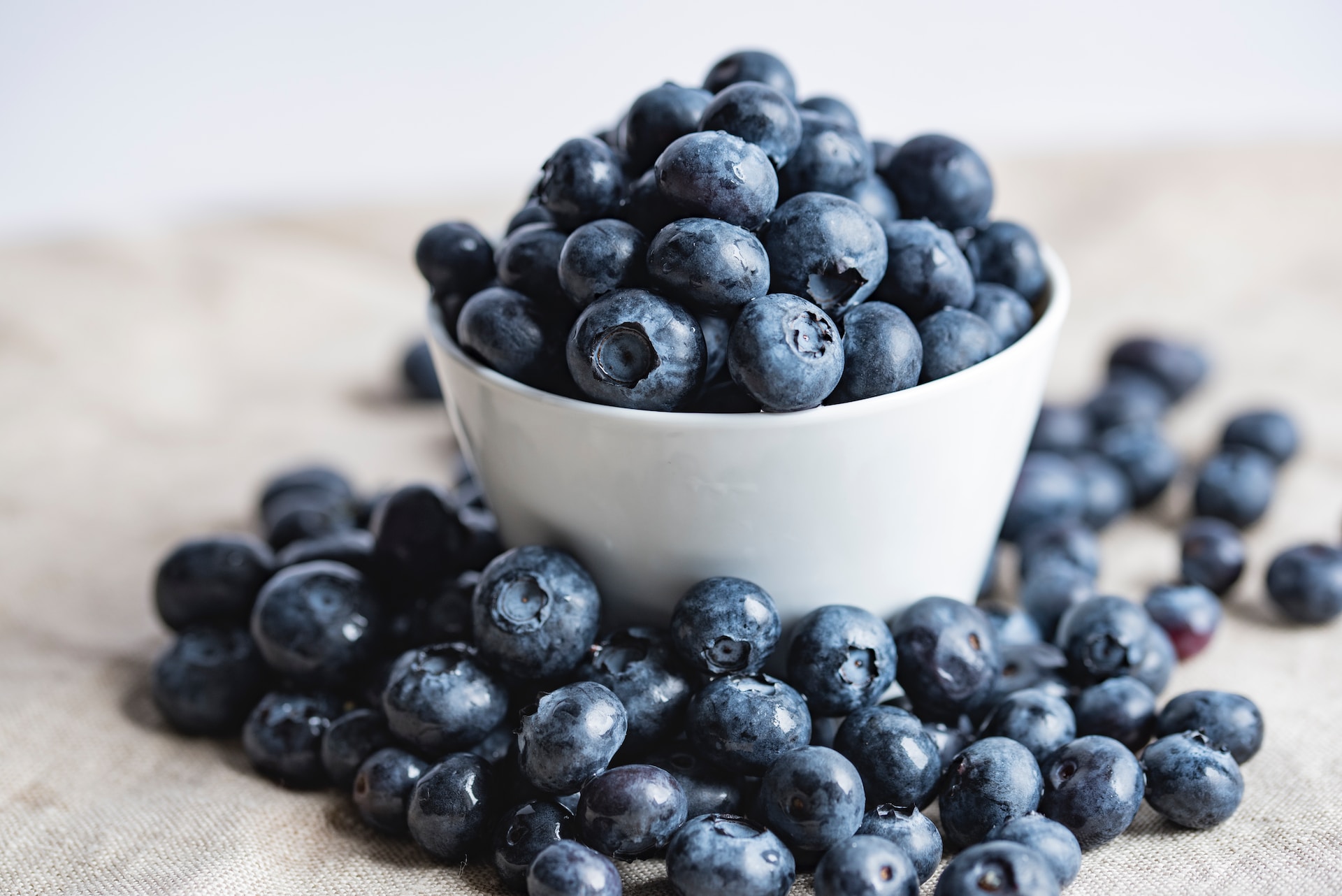Maintaining a healthy diet is essential for overall well-being. In today’s fast-paced world, it can be challenging to consume all the necessary nutrients that our bodies need. That’s where superfoods come into play. Incorporating these nutrient-dense foods into our daily diet can provide a significant boost to our nutritional intake and improve our overall health.
Definition of superfoods
Superfoods are foods that are packed with a high concentration of vitamins, minerals, and antioxidants. They offer numerous health benefits and are considered to be particularly beneficial for our well-being. Superfoods can help optimize our body’s functioning and protect against diseases when consumed as part of a balanced diet.
Blueberries
Blueberries are undoubtedly one of the most popular superfoods. They are packed with essential vitamins and minerals, making them an excellent addition to any diet. These tiny berries are rich in antioxidants, which play a vital role in protecting our cells from damage caused by harmful molecules called free radicals. Additionally, blueberries have been linked to improved brain function, heart health, and a reduced risk of chronic diseases.
There are various ways to incorporate blueberries into your diet. They can be enjoyed on their own as a snack, added to smoothies or yogurt, or used in baking. However, it’s important to note that some individuals may experience an allergic reaction to blueberries, so it’s always advisable to consume them in moderation and seek medical advice if needed.
Kale
Kale is a leafy green vegetable that is often touted as a nutritional powerhouse due to its impressive nutrient profile. It is rich in vitamins A, C, and K, as well as minerals like calcium and potassium. Furthermore, kale is a great source of fiber, which aids in digestion and promotes a healthy gut.
There are numerous ways to prepare and enjoy kale. It can be sautéed, roasted, or used in salads. However, it’s essential to note that kale contains compounds called oxalates, which can interfere with the absorption of calcium in some individuals. If you have a history of kidney stones or certain medical conditions, it’s advisable to moderate your intake of kale and consult with a healthcare professional.
Salmon
Salmon is a fatty fish that is loaded with heart-healthy omega-3 fatty acids. These fatty acids have been shown to reduce inflammation, improve brain function, and promote heart health. Additionally, salmon is an excellent source of high-quality protein, which is essential for muscle development and repair.
Salmon can be prepared in various ways, such as grilling, baking, or poaching. However, it is important to cook salmon thoroughly to ensure any bacteria or parasites are eliminated. Consumption of raw or undercooked salmon can pose a health risk, particularly for pregnant women, young children, and those with compromised immune systems.
Quinoa is a versatile and nutrient-rich grain that has gained popularity in recent years. It is packed with essential amino acids, making it a complete source of protein. Quinoa is also high in fiber, which aids in digestion and helps maintain a healthy weight.
There are many ways to incorporate quinoa into meals. It can be used as a base for salads, added to soups or stews, or used as a substitute for rice or pasta. However, individuals with certain allergies or dietary restrictions, such as those with celiac disease or a gluten intolerance, should be cautious as quinoa naturally contains a compound known as saponin, which can cause digestive discomfort.
Greek Yogurt
Greek yogurt is a creamy and delicious superfood that offers numerous health benefits. It is high in protein and calcium, which are essential for muscle growth, bone health, and overall bodily functions. Greek yogurt also contains probiotics, which promote a healthy gut and improve digestion.
Greek yogurt can be enjoyed on its own as a snack, used as a base for smoothies, or added to various dishes as a healthy substitute for sour cream or mayonnaise. However, those with lactose intolerance or dairy allergies should seek alternatives or opt for lactose-free Greek yogurt to avoid any adverse reactions.
Spinach
Spinach is a leafy green vegetable that deserves a spot on every superfood list. It is low in calories but high in vitamins and minerals, including vitamin K, vitamin A, iron, and folate. Additionally, spinach contains antioxidants that may help prevent certain types of cancer.
There are many ways to incorporate spinach into your diet. It can be used in salads, sautéed as a side dish, blended into smoothies, or added to soups and stews. However, individuals taking blood-thinning medications should consult with a healthcare professional, as spinach contains vitamin K, which can interfere with the effectiveness of these medications.
Sweet Potatoes
Sweet potatoes are a delicious and nutritious root vegetable that provides numerous health benefits. They are rich in fiber, which aids in digestion and helps regulate blood sugar levels. Sweet potatoes are also high in vitamins A and C, which support brain function, vision, and immune health.
There are various cooking methods for sweet potatoes, including baking, roasting, or boiling. However, individuals with kidney problems or diabetes should monitor their intake, as sweet potatoes contain oxalates and carbohydrates that can affect these conditions.
Chia Seeds
Chia seeds have gained popularity in recent years due to their impressive nutritional profile. They are rich in fiber and omega-3 fatty acids, which are essential for digestion, heart health, and improved energy levels. Chia seeds also absorb liquid, helping to keep us hydrated.
Chia seeds can be incorporated into meals and beverages in many ways. They can be added to smoothies, sprinkled on yogurt or oatmeal, or used as an egg substitute in baking. However, individuals with digestive disorders or certain allergies should introduce chia seeds gradually and monitor their body’s response.
Avocado
Avocado is a creamy and nutritious fruit that is often referred to as a superfood. It is rich in healthy fats, particularly monounsaturated fats, which are beneficial for heart health and can help reduce bad cholesterol levels. Avocados are also packed with vitamins and minerals, including potassium, vitamin K, and vitamin E.
There are various ways to enjoy avocados in meals and snacks. They can be sliced and added to salads, mashed and spread on toast, or used as a base for creamy dips and dressings. However, individuals with specific dietary or medical conditions, such as those with pancreatitis or gallbladder disease, should limit their avocado intake and consult with a healthcare professional.
Almonds
Almonds are a nutritious and versatile nut that offers numerous health benefits. They are rich in vitamins and minerals, including vitamin E, magnesium, and calcium. Almonds are also high in healthy fats and fiber, which can help with weight management and support brain function.
Almonds can be enjoyed in various ways. They can be eaten on their own as a snack, added to salads or stir-fries, or used in baking. However, individuals with nut allergies should avoid almonds and opt for other alternatives to ensure their safety.
Conclusion
Incorporating superfoods into our daily diet is a fantastic way to boost our nutritional intake and improve our overall health. From blueberries and kale to salmon and almonds, these nutrient-dense foods offer abundant vitamins, minerals, antioxidants, and other health-promoting compounds. By including these superfoods in our meals and snacks, we can take significant steps towards achieving optimal health and well-being. So, let’s make a conscious effort to incorporate these superfoods into our daily routine and reap the long-term benefits they provide.



